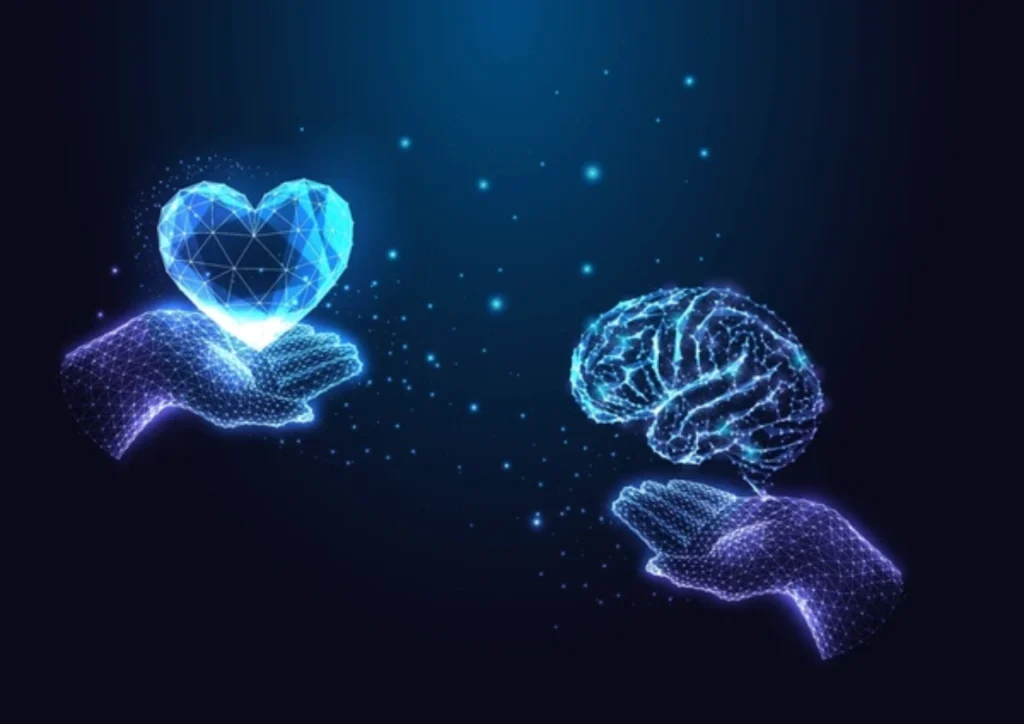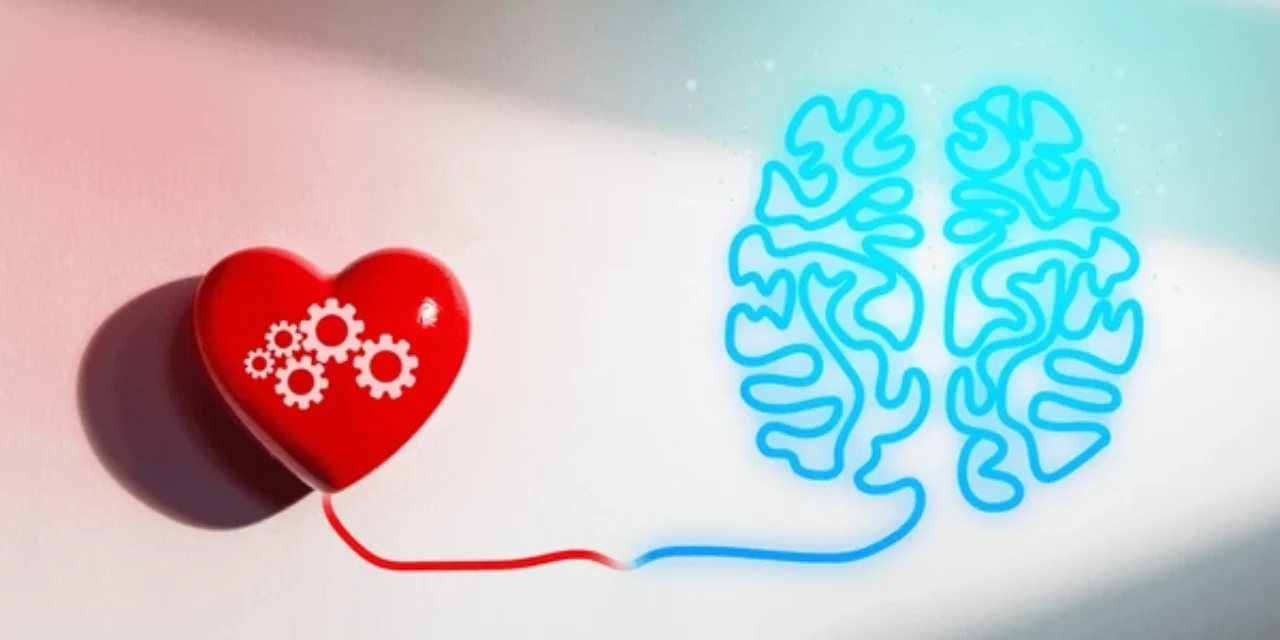Emotions are key in our choices and actions. They motivate and guide us. Without them, we’d be stuck in neutral. Antonio Damasio’s work shows emotions are vital for making smart choices.
Emotions quickly assess our experiences to help us act fast. But, they can be quick to judge, driven by survival instincts. As parents, knowing this helps us teach our kids about emotions and making choices.
Research on emotions and decision-making has grown a lot. From 2001 to 2013, the number of studies on this topic skyrocketed. Now, many experts think emotions lead most important life decisions1. Decisions are a way for emotions to steer us away from bad feelings and towards good ones1.
Eight main ways emotions influence our choices have been found1. This shows how deeply emotions shape our decisions.
Key Takeaways
- Emotions are essential for rational decision-making and behavior.
- Emotions quickly evaluate experiences to inform rapid responses, though they may not always be accurate.
- The study of emotion and decision-making has gained significant attention, with a surge in scholarly publications on the topic.
- Emotions are believed to be the dominant driver of most meaningful decisions in life.
- Emotions impact judgment and decision-making through various psychological mechanisms.
Understanding the Fundamental Role of Emotions in Decision-Making
Research on emotional intelligence has shown that emotions play a big part in making decisions2. Key parts of emotional decision-making include knowing yourself, controlling your emotions, and understanding others2. Our body’s quick, automatic responses can also affect how we see information2.
The Evolution of Emotional Intelligence Research
In the last ten years, there’s been more focus on how emotions affect our actions2. Studies have found that emotions are closely linked within and between people2. The VAD model, based on valence, arousal, and control, is the most accurate way to measure emotions2. Emotions also impact our attention, how we see things, and how we remember2.
Core Components of Emotional Decision-Making
Emotional intelligence includes knowing and managing your feelings, understanding others, and using emotions to guide choices2. By improving emotional intelligence, people can make better decisions. Emotional intelligence is key for making tough choices.
Biological Basis of Emotional Responses
The Ipsos Dynamic Decision-Making Model is a big step forward from the DPT2. It shows how our biology affects our emotions and decisions. Knowing how our brain handles emotions can help us make better choices.
| Emotion Research | Key Findings |
|---|---|
| Subjective Experience of Emotion | Emotions are highly intercorrelated both within and between subjects reporting them2. |
| Dimensional Model of Emotion | The valence, arousal, and control/dominance (VAD) model is the most accurate, according to factor analysis studies2. |
| Emotion’s Influence on Cognition | Emotions have a significant impact on attention, perception, memory encoding, and associative learning2. |
| Decision-Making Models | The Ipsos Dynamic Decision-Making Model represents an advancement over the Default Interventionist Dual Process Theory2. |
Understanding how emotions influence decision-making processes helps us develop emotional intelligence. This is especially important for child development. Parents can teach kids to recognize, manage, and understand the emotional side of their choices.
The Science Behind Emotional Impact on Behavioral Choices

Research in neuroscience shows that emotions, not just reason, guide most of our choices and actions3. In fact, 90 to 95 percent of our decisions are driven by emotions, with only 5 to 10 percent based on reason3. This shows how big a role emotions play in our decisions, especially for parents guiding their kids.
The brain’s emotional circuits are key in this process. Serotonin levels change throughout the day. In the morning, they’re higher, making us more open to new ideas. But as the day goes on, they drop, making us more cautious3. Knowing this can help parents understand how their kids’ emotions affect their choices.
There are ways to change the brain’s emotional state and influence decisions. For example, humor can reduce stress and make us more open to risks3. The “IKEA Effect” also shows that feeling invested in something can lead to better choices3.
By understanding how emotions shape our behavior, parents can use this knowledge to help their kids grow. This can help families make better choices and support their children’s development.
| Emotion Concept | Description | Practical Application |
|---|---|---|
| Emotion Schemas | Dynamic emotion-cognition interactions that can be momentary/situational or enduring personality traits4. | Recognize how emotions and cognition interact, and how enduring emotional patterns can influence behavior. |
| Differential Emotions Theory | Highlights the distinct roles of different emotions in the evolution and development of consciousness/awareness4. | Understand how specific emotions, such as interest, can contribute to well-being and constructive engagement. |
| Emotion Feelings and Psychopathology | Maladaptive emotion schemas can lead to psychopathology due to connections between emotion feelings, cognition, and actions4. | Identify and address problematic emotional patterns that may be contributing to behavioral issues. |
By using what we know about emotional decision-making, parents can help their kids make better choices5. This knowledge helps families understand the complex relationship between emotions, thoughts, and actions. It supports the healthy growth and well-being of young people.
How Mood States Influence Decision-Making Processes
Our emotions greatly shape our choices. Research shows that different mood states can change our decisions6. Happy moods make us think rewards are bigger and risks smaller6. Sad or anxious moods, on the other hand, make us want more information before big decisions6.
How intense our emotions are also matters. Strong feelings, whether good or bad, can cloud our judgment. This can lead to choices that aren’t in our best interest6. As parents, knowing this helps us teach our kids to make better choices.
Positive Mood Effects on Choice
Being in a good mood makes us more hopeful about outcomes. Studies show that positive feelings can make us see things better and take more risks7. We focus more on what could go right than what might go wrong7.
Negative Mood Influence on Judgment
Negative feelings like anxiety or sadness can also affect our thinking. Research shows people feeling down are more cautious in their choices8. This might be because they worry more about feeling better6.
The Role of Emotional Intensity
How intense our emotions are also affects our decisions. Strong feelings can make it hard to think clearly and make good choices6. Teaching our kids to recognize their feelings and how they impact their choices is important.
| Mood State | Impact on Decision-Making |
|---|---|
| Positive Mood | Increased risk-taking, focus on potential rewards7 |
| Negative Mood | More conservative risk-taking, focus on potential losses8 |
| Intense Emotions | Impaired information processing and objective judgment6 |
Understanding how mood affects our choices helps us make better decisions. We can learn to manage our emotions better and choose what’s best for us in the long run.
Parent-Child Emotional Dynamics in Decision-Making
The bond between parents and children greatly affects how they make decisions9. Parents show kids how to deal with different situations. By talking about feelings and helping with choices, parents help kids learn to make smart decisions9.
Teaching kids to control their emotions is key for their growth9. The family setting plays a big role in a child’s emotional and social development9. As kids get older, how parents act affects their learning and feelings9.
A study in China showed that when parents and kids work together on decisions, it helps with emotional choices10. This teamwork also reduces binge drinking later on10. But, it doesn’t affect school work or memory10.
Happy and healthy kids do well in school and behave better11. Parents who are both loving and structured help kids manage their feelings11. But, strict parenting can hurt how kids get along with others, especially boys and younger kids11.
Knowing how emotions play out in the parent-child relationship helps families. It creates a supportive space for kids to grow and make good choices. This benefits kids now and as they become adults.
The Connection Between Rational Thinking and Emotional Processing
Rational thinking and emotional processing are closely linked in making decisions. Good choices often need a mix of logic and feeling. Parents can play a vital role in teaching kids to weigh facts and feelings when deciding.
Integration of Logic and Feeling
Research shows that emotions and reason work together, not against each other12. People who are smarter tend to notice and understand emotions better12. They also use emotional info when making choices12. Ancient Stoics also saw a link between emotions and judgment, showing reason in emotions13.
Cognitive-Emotional Balance in Choices
Finding the right mix of reason and emotion is key for good decision-making12. Ignoring emotions can harm health, like raising blood pressure12. But, managing emotions well can help predict others’ feelings and make better long-term choices12. Teaching kids to share their thoughts and feelings helps them make smarter choices and understand emotions better12.
13Economist Elster found that emotions are crucial in decision-making, not just ignored as before13. Emotions help in making deals and balancing choices13.
13Neuroscientist Ledoux showed how emotions and reason work together in fear responses13. Turner’s work also shows how emotions help in social activities and organization13.
By teaching kids to balance reason and emotion, parents help them make better choices. This approach boosts their decision-making and emotional smarts.
Emotional Intelligence in Personal and Professional Decisions
Emotional intelligence (EQ) is key in making both personal and professional choices. It helps us understand and manage our feelings and those of others. Learning emotional intelligence can improve our relationships, happiness, and career success14. People with high EQ are better at handling conflicts and communicating, which is vital at work14. They also make more thoughtful decisions by thinking before acting14.
In our personal lives, EQ helps us make better choices, leading to stronger bonds and well-being15. Thinking about past experiences helps us make smarter decisions in tough times15. Those with high EQ are good at reading emotional signals, feeling at ease socially, and understanding team dynamics15. They also know how to see things from another’s point of view and respond in a way that fits15.
In work settings, EQ boosts leadership and career advancement14. Good leaders are self-aware, objective, humble, and empathetic14. When employees feel valued, they’re happier and work better14. EQ can be improved by slowing down emotional reactions, knowing our strengths and weaknesses, and improving communication skills14.
Today, many companies value EQ as much as technical skills and use EQ tests in hiring16. High EQ helps people deal with workplace social issues, lead, and succeed in their careers16. It also lets us understand nonverbal cues, showing how others feel and what matters to them16.
By growing emotional intelligence, we can make better choices and achieve more in our careers. Parents can help by showing emotionally intelligent behavior and talking about the emotional sides of life choices.
Understanding Regret and Its Impact on Future Choices
Regret is a strong emotion that affects our choices and future decisions. Research finds that people often regret their education, career, love life, and parenting choices. Cultural differences also play a role, with some cultures focusing more on personal achievements and others on relationships17.
Prevention Strategies for Decision Regret
Regret can make us feel sad, disappointed, guilty, and ashamed. Yet, it can also teach us valuable lessons17. Factors that increase regret include not accepting uncertainty, being overly critical, and worrying too much about the future17. People who aim for perfection often regret more than those who settle for good enough17.
Learning from Past Emotional Decisions
Regret is a negative emotion that can motivate us to change for the better18. It can influence our future choices and help us grow18. Experts say that dealing with regret can lead to better decision-making and personal growth18.
Regret can last from minutes to a lifetime19. Studies show that regret activates certain brain areas19. It can also harm our health and disrupt our hormones and immune system19. Action-related regrets can teach us to move forward, while inaction-related regrets can lead to depression and anxiety19.
Parents can help children learn from regret. By talking about emotions and how to make better choices, parents can build resilience. This helps children understand the impact of their choices and the importance of emotional awareness.
| Regret Type | Characteristics | Outcomes |
|---|---|---|
| Action-related Regret | Regret over things done or choices made | Leads to learning from mistakes and moving forward |
| Inaction-related Regret | Regret over things not done or choices not made | Associated with depression, anxiety, and feeling of missed opportunities |
“Regret can act as a motivator, driving individuals to overcome past mistakes or take corrective action.”
Managing regret means accepting and learning from it19. Techniques like changing how we think can reduce regret and improve future decisions19. Forgiving ourselves is crucial, and cognitive models like REACH can help19. Knowing more about our options can also reduce regret and improve decision-making19.
Understanding regret helps us make better choices in the future. It builds confidence and resilience. This leads to better outcomes and a deeper understanding of how emotions shape our lives.
The Role of Intuition and Gut Feelings
Intuition and gut feelings are key in making decisions, using our subconscious20. Yet, it’s crucial to mix these with logical thinking20. Parents can teach kids to weigh their gut feelings against reason, leading to better decision-making20.
Studies highlight the importance of emotional signals in decision-making21. They show how gut feelings connect to brain areas for emotions and thinking21. Being sensitive can also help in business, thanks to emotional smarts21.
Intuition comes from complex brain circuits, including the amygdala and insula, which respond to emotions and body signals.20 Antonio Damasio’s work shows somatic markers in the brain are key for making choices21.
CEOs find trusting their gut more valuable in unclear situations21. People with ADHD or autism might struggle with gut feelings due to body awareness issues21. Therapy and mindfulness can help them tune into their gut21.
“Intuition is the highest form of intelligence, transcending knowledge.” – Florian Armas
Managing Emotional Responses for Better Decision-Making
Good decision-making means knowing how to handle your emotions. Emotional regulation is key. It’s a skill you can learn to make choices that are more rational and informed22.
Techniques for Emotional Regulation
Mindfulness is a great way to manage emotions. It’s about being fully present and aware of your thoughts and feelings without judgment. This helps you make decisions without being swayed by emotions23.
Reframing is another useful strategy. It’s about looking at things from different angles. This can help reduce the negative effects of emotions on your choices. Also, taking time to calm down before making big decisions is helpful. It lets your thinking catch up with your feelings, avoiding impulsive decisions22.
Building Emotional Awareness
Knowing your emotions is vital for making good decisions and for parenting. Recognizing your feelings helps you understand how they might affect your choices and actions23. Parents can teach these skills by being examples, talking openly, and practicing together in daily life. This helps kids make better, more thoughtful decisions23.
| Emotional Regulation Techniques | Benefits |
|---|---|
| Mindfulness | Enhances the ability to observe emotions without being overwhelmed by them, enabling more objective decision-making. |
| Reframing | Shifts perspective to consider alternative interpretations, mitigating the impact of negative emotions on decision-making. |
| Cooling Down | Allows the head to catch up with the heart, preventing impulsive choices driven by intense emotions. |
“Developing emotional self-awareness can help individuals assess the impact of emotions on their outcomes, and regularly practicing deep breathing to regulate emotions can improve decision-making by enhancing cognitive function.”22
Social Context and Emotional Decision-Making
The social environment greatly affects our emotional choices24. Decisions made with others can be different from those made alone. We often think about how our choices will affect others25. Knowing this can help us make better choices that reflect our values.
Parents are key in teaching kids about social influences. Talking about peer pressure, family expectations, and staying true to oneself is important. This helps kids make smart choices and grow emotionally24.
| Key Factors Influencing Emotional Decision-Making | Impact on Decision Outcomes |
|---|---|
| Peer Pressure | Increased risk-taking, conformity, and disregard for personal values |
| Family Expectations | Feelings of obligation, guilt, and internal conflict in decision-making |
| Social Norms and Cultural Influences | Decisions shaped by societal expectations, leading to suppression of individual emotions and preferences |
Understanding social influences can help us make better choices25. It leads to more fulfilling decisions, improving our well-being.
“The social environment significantly shapes our emotional decision-making, but by cultivating self-awareness and considering multiple perspectives, we can make choices that align with our true selves.”
Overcoming Emotional Bias in Critical Decisions
Emotions can greatly affect our choices, sometimes leading to biases. As parents, teaching our kids to think critically is key. We should encourage them to question their beliefs, look at different views, and judge facts fairly. This way, they can handle tough situations better.
A study26 showed that feeling deeply can help in making better decisions. Knowing and controlling our emotions is crucial for wise choices, even when feelings are strong.
Traditionally, emotions were seen as opposing rational thinking. Companies might even ask employees to keep their feelings in check26. But, new research is changing this view. It shows that strong feelings can actually help in making better decisions26.
As parents, we can teach our kids to think critically. Encourage them to question their assumptions, consider alternative viewpoints, and evaluate evidence objectively, even when emotions are involved. This way, they can make more informed and rational choices, leading to better results.
- Recognize emotional biases: Teach your child to identify when their emotions are influencing their decision-making, such as confirmation bias or anchoring bias.
- Seek diverse perspectives: Encourage your child to seek out opinions and information that challenge their initial beliefs, allowing them to consider a broader range of options.
- Utilize structured decision-making: Introduce your child to techniques like pros and cons lists, decision matrices, or decision trees to help them evaluate choices systematically.
By teaching critical thinking and emotional awareness, we help our kids deal with emotions and logic. This empowers them to make informed, rational decisions that lead to positive outcomes2627.
The link between emotions and decision-making is complex, with ongoing debate26. Yet, research shows that how we process emotions affects our choices26. By teaching our kids to think critically and be aware of their emotions, we give them the tools to make wise decisions, even when emotions are high.
The Power of Positive Emotions in Choice Architecture
Using positive emotions in choice architecture can change the game. Studies show that environments that boost positive feelings lead to better decisions28. This includes more creativity, openness, and choices that are good for the planet28.
Parents can use this to help their kids make better choices. Creating a positive space where kids feel good about their choices can inspire them28. It makes them more likely to think of new options and see the good in their choices28.
This method also helps kids grow emotionally and become more resilient28. It teaches them to face challenges with a positive attitude.
Parents and caregivers can use positive emotions to guide kids towards better choices28. This approach combines emotional health with smart thinking. It opens doors to personal growth and better decision-making for kids and adults alike.
FAQ
How do emotions impact decision-making and behavior?
What is emotional intelligence and how does it relate to decision-making?
How do specific emotions influence behavioral choices?
How do mood states impact decision-making processes?
How does the parent-child relationship influence emotional dynamics in decision-making?
How are rational thinking and emotional processing connected in decision-making?
What is the role of emotional intelligence in personal and professional decision-making?
How can understanding regret impact future decision-making?
What is the role of intuition and gut feelings in decision-making?
How can managing emotional responses improve decision-making?
How does social context influence emotional decision-making?
How can emotional biases be overcome in critical decisions?
How can positive emotions be leveraged in choice architecture to promote better decision-making?
Source Links
- The role of emotion in human decision-making
- Feelings First: How Emotion Shapes Our Communication, Decisions, and Experiences
- Emotion Theory and Research: Highlights, Unanswered Questions, and Emerging Issues
- Microsoft Word – Baumeister et al emotions chapter.doc
- All Negative Moods Are Not Equal: Motivational Influences of Anxiety and Sadness on Decision Making
- How emotions inform judgment and regulate thought
- doi:10.1016/S0165-0327(02)00022-8
- The Role of the Family Context in the Development of Emotion Regulation
- Parent-Child Engagement in Decision Making and the Development of Adolescent Affective Decision Capacity and Binge Drinking
- Frontiers | Editorial: Parental influence on child social and emotional functioning
- Do Emotions Help or Hinder Rational Thinking?
- Rationality and emotions – PMC
- What is emotional intelligence and how does it apply to the workplace?
- Master emotional intelligence and elevate your career. | Birkman
- Improving Emotional Intelligence (EQ): Expert Guide
- How Regrets Can Help You Make Better Decisions
- How to Cope With Regret
- Regret Can Be All-Consuming; a Psychologist Explains How to Overcome It
- The Roots of Intuition and Emotional Intelligence
- Gut Feelings: Exploring Why and How to Listen to Your Intuition – Humantold
- How to Tame Your Emotions and Make Better Choices
- Using Your Emotions To Make Better Decisions- 6 Powerful Ways – Douglas E. Noll
- Emotion and Decision Making
- Emotional Decision Making
- BEING EMOTIONAL DURING DECISION MAKING—GOOD OR BAD? AN EMPIRICAL INVESTIGATION
- Believing in Overcoming Cognitive Biases
- Norm-focused nudges influence pro-environmental choices and moderate post-choice emotional responses





